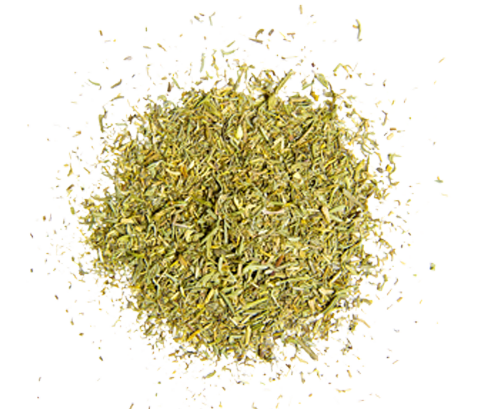Consumer Reports tested 15 types of dried herbs and spices used in a variety of cuisines. They looked at 126 individual products from national and private-label brands, such as Great Value (Walmart), La Flor, McCormick, Penzeys, Spice Islands, and Trader Joe’s.
The results were astonishing. And you can’t guess which brand will come up with these toxic chemicals. Roughly one-third of the tested products, 40 in total, had high enough levels of arsenic, lead, and cadmium combined, on average, to pose a health concern for children when regularly consumed in typical serving sizes. Most raised concern for adults, too.
For two herbs, thyme and oregano, all the products tested had levels that CR experts say are concerning, meaning there are no safe brands out there. In 31 products, levels of lead were so high that they exceeded the maximum amount anyone should have in a day, according to CR’s experts.
Also troubling: There was no single predictor of which products contained higher levels of heavy metals—for example, brand name didn’t matter, and neither did “organic” or “packed in USA” claims.
Regular exposure to even tiny quantities of heavy metals like lead, arsenic, and cadmium can be hazardous to health. This is primarily due to the human body’s difficulty in breaking down or removing them. Over time, exposure to these heavy metals can have detrimental effects on health. In children, it can impede brain development, elevate the risk of behavioral issues, and lead to lower IQ scores. In adults, it can contribute to problems in the central nervous system, reproductive system, and hypertension. Additionally, it can harm kidney and immune function.
Even in small amounts, heavy metals such as lead, arsenic, and cadmium can increase the risk of cancer, reproductive and cognitive problems, and other adverse conditions. Exposure to these metals puts children at risk for lowered IQ, behavioral problems like attention deficit hyperactivity disorder, Type 2 diabetes, and other health issues.
Consumer Reports experts warn that in 31 products, levels of lead exceeded the maximum amount one should consume in a day. They caution that consuming just one serving, which is 3/4 teaspoons or more, leaves little room for heavy metal exposure from other sources like fruit juice, baby food, and rice.
When preparing recipes, spices and dry herbs are often combined. However, according to Consumer Reports findings, a dish that has just ¼ teaspoon each of Great Value (Walmart) Chili Powder, Trader Joe’s Organic Cumin, and La Flor Oregano per serving would contain enough arsenic, cadmium, and lead to pose a concern. Ginger worries me! ~ Kelly
Season Safely – Consumer Reports Advice. More detail here.
CONSUMER REPORTS tested 126 herbs and spices from 38 brands for arsenic, cadmium, and lead. (We did not test spices that tend to be used in baking, such as cinnamon and nutmeg.) We tested two or three samples from different lots of each product. Our findings are a spot check of the market and cannot be used to draw definitive conclusions about brands. The products are organized alphabetically by type. Within each group, the products are listed according to the degree of concern. Regularly consuming ¾ teaspoon or more daily of a product in one of the concerning categories could, over time, pose a health risk to children as a result of the combined levels of the three heavy metals. Unless noted, they could also pose a risk to adults. The more red boxes next to a product, the higher the concern. Details here.
While the risk of heavy metals in herbs and spices is real, limiting your risk doesn’t mean dooming yourself to a life of bland food or giving up old family favorites. Follow these tips says Consumer Reports.
Choose products with the lowest levels of heavy metals. CR’s tests found at least one product that fit in our No Concern category for every herb and spice we tested except oregano and thyme.
Focus on herbs and spices that are lower in heavy metals. These were black pepper, coriander, curry powder, garlic powder, saffron, sesame seeds, and white pepper. That doesn’t mean that every brand of these herbs and spices is low in heavy metals, because we didn’t test them all. But it is easy to find low-risk versions of them.
Don’t assume some brands are safer than others. CR’s tests could not determine whether one brand was consistently better or worse than any other. And organic products did not have consistently lower levels than conventionally grown ones. While that might surprise some, CR’s Ronholm says the USDA’s organic standards don’t include heavy metal testing.
Grow and dry your own. That might be a particularly good idea if you use a lot of basil, oregano, and thyme; in our tests all or almost all the brands tested were high in heavy metals. Read more about how to grow and dry your own herbs and spices.
Think twice about bringing back herbs and spices from travel abroad.Heavy metal content can be much higher in those products, according to other research. U.S. companies may buy the highest-quality herbs and spices to import, Ronholm says, which could leave lower-quality versions to be sold in the country of origin.
Consider your total potential exposure to heavy metals. This is especially important if you have kids at home. Our tests are a reminder that you should take steps to limit your potential exposure from heavy metals from all sources.

